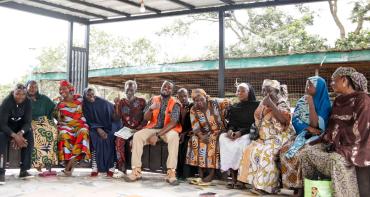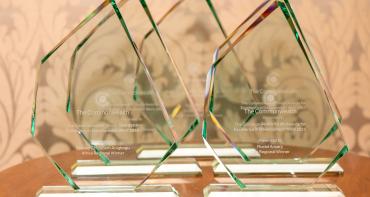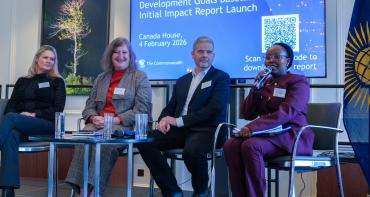The 9th Commonwealth Debate on Sport and Sustainable Development, co-hosted by the Commonwealth Secretariat and Commonwealth Sport, saw two strong teams of experts debate the merits of traditional and modern sport. Both sides agreed that sport has tremendous potential to unite and inspire communities.
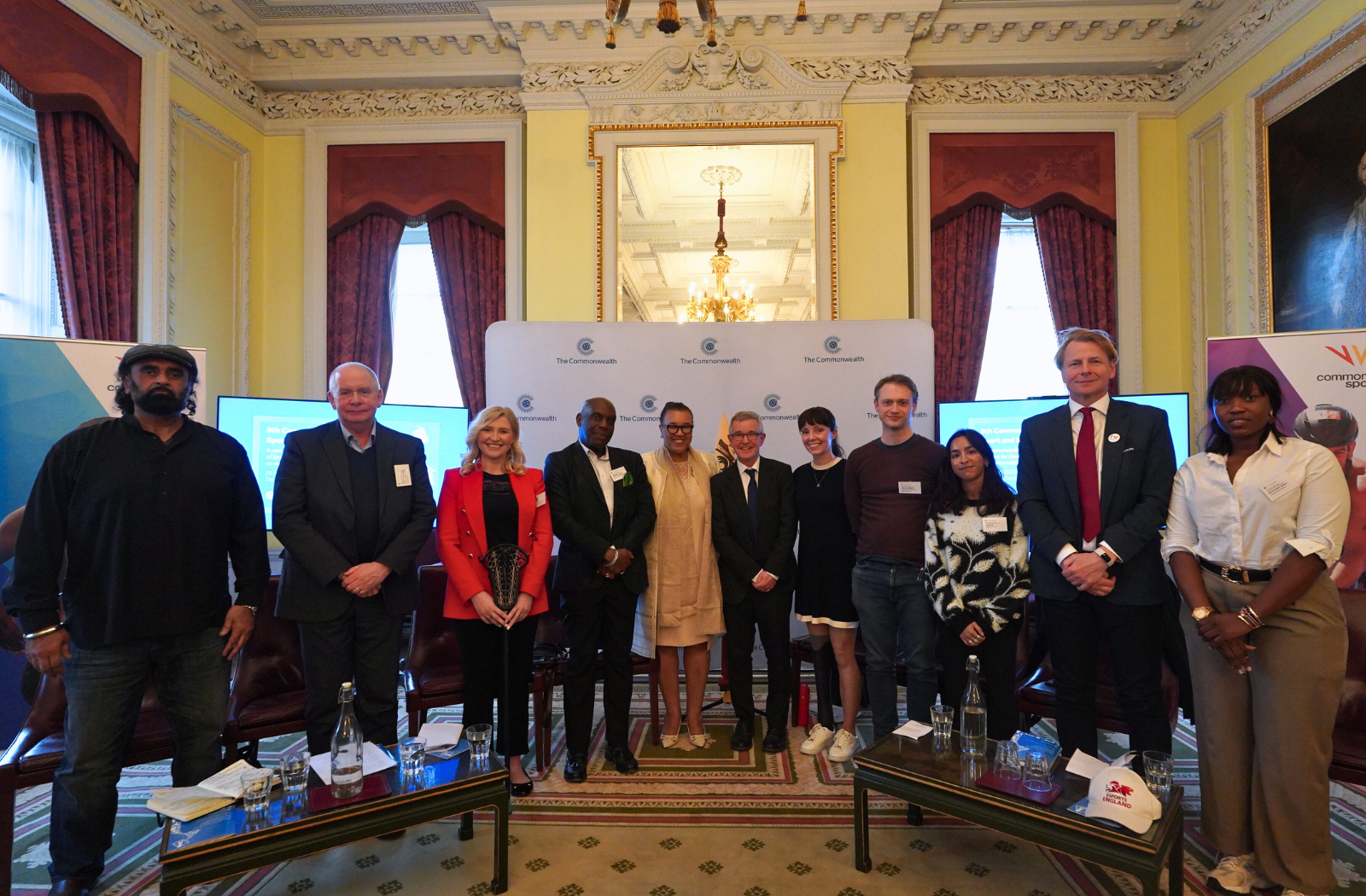
In a closely fought contest, and following a lengthy deliberation, the judges agreed that the team in favour of modern sports were the debate winners.
The debate was held in late March, before the International Day of Sport for Development and Peace, which is marked annually on the 6th of April.
In one of her final appearances as the sixth Commonwealth Secretary-General, the Rt Hon Patricia Scotland KC, praised the role that sport plays across the 56 member countries.
Opening the debate, which was themed ‘Preserving traditional games honours cultural identity but is a distraction from the future-focused demands of modern sports’, the former Secretary-General said:
“Sport, as we know, is far more than competition and medals. It is a force for unity, empowerment, and transformation. Across our 56 member states, from the sunlit cricket grounds of the Caribbean to the rugby fields of the Pacific, sport is a language understood by all.
“It builds bridges across cultures, strengthens communities, and provides a platform for leadership and opportunity—particularly for young people.”
During the debate, both teams gave strong arguments in favour of modern and traditional sports. Both sides said it was a unifying, enriching part of life across the Commonwealth that transcended barriers and challenges.
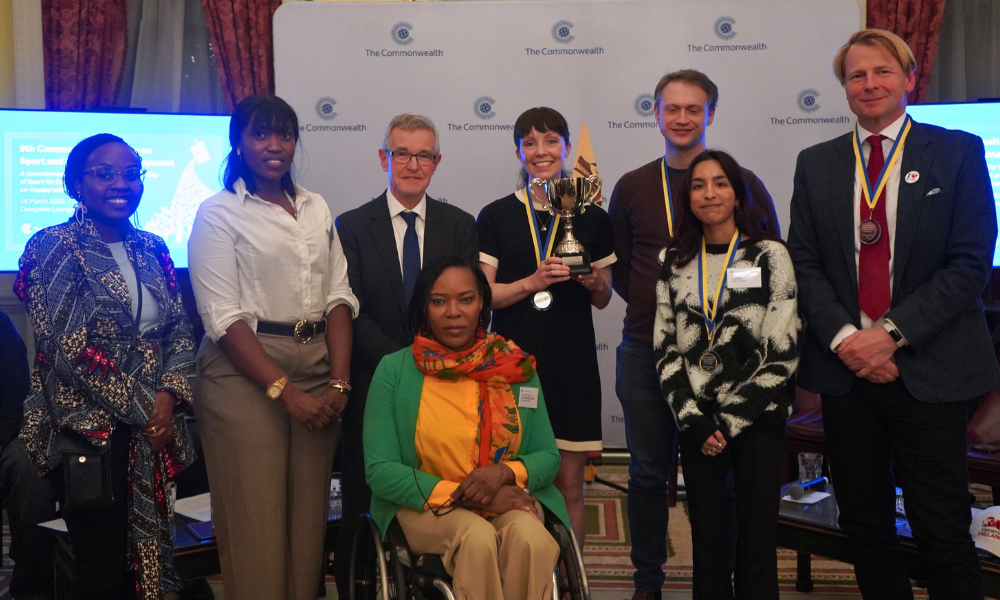
In closing the argument for the team in favour of traditional sports Vincent John, Chair of the Cultural Games Association UK, said:
“If we disregard our tradition and we simply focus on the sports of today, sooner or later the essence and key requirements and characteristics of those traditional heritage issues will be lost. We must think of the positive impact that traditional games have on communities that we have never heard of, which is absolutely amazing.”
Summing up for the team in favour of modern sports, former Paralympic world champion Stef Reid said:
“Kids have grown up in a different world than we did, and we are fighting with all sorts for their attention. Modern sports like e-games meet them where they are at, and it honours the world they grew up in and in ensures we do not lose them.
“Sport does a lot of good things for society, but it can only do those things if it meets people where they are at. And modernisation is necessary to reach people because it keeps sport relevant and accessible.”
The President of Commonwealth Sport, Chris Jenkins, reflected on the Lekwungen Paddle which was mounted on stage between the two teams. The paddle was commissioned for a traditional canoe welcome and presented at the 2022 Victoria Forum, to symbolise what has become the Commonwealth Sport Declaration on Reconciliation and Partnership with Indigenous Peoples.
The debate also reflected a focus on ensuring the preservation of traditional culture and the inclusion of Indigenous Peoples in decision-making. The declaration was launched at the 11th Commonwealth Sports Ministers Meeting in Paris last year.
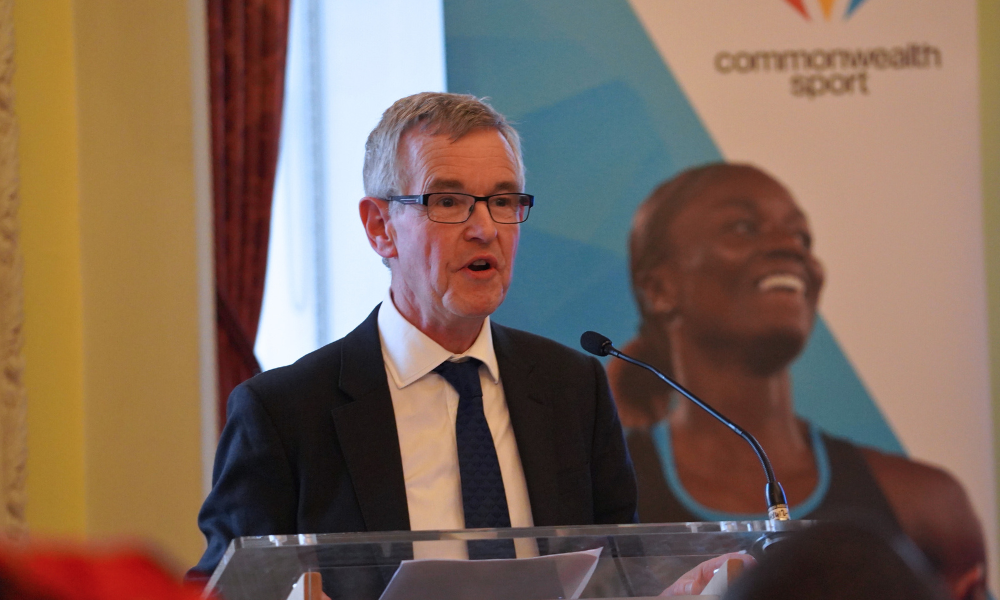
Dr Jenkins said:
“It provides a symbol of how sport can be a safe space to have very difficult conversations. The paddle serves as a powerful symbol, a powerful reminder of the Commonwealth Sport Declaration and Reconciliation and Partnership with Indigenous Peoples.”
Focussing on the power of sport to change lives, change mindsets, and drive Commonwealth initiatives, in his speech the President of Commonwealth Sport quoted Kenyan Paralympian Samson Okutto, who once wrote:
“Sport is beautiful. Sport helped me be who I am. Sport gave me life. Sport shaped my character. Sport developed me as a person. Sport took me to school. Sport gave me work.”
Arguing for the motion were:
- Vincent M John: Chairman of the Cultural Games Association UK
- Stuart MacDonald: Founder-Director of ICR Research
- Noora Virtanen: Finland international lacrosse player
- Ranjit Singh, Head Coach of Wolverhampton Wrestling Club and founding member of the British Kabaddi League.
Arguing against the motion were:
- Chester King: President of the Esports Federation and Vice-President of the European Esports Federation.
- Stef Reid: former British Paralympic track and field world champion
- Dr Rory Summerley, Course Leader in Game Design and Development at London South Bank University
- Zoya Zia, Senior Impact and Evaluation Officer at Chance to Shine Cricket
Each year, the event offers a platform for Commonwealth ministers, senior government officials, high commissioners, athletes, academics, sports advocates, representatives from Commonwealth-accredited organisations and young people to discuss sport-related issues.
Watch the debate
Media contact
-
Ben Maloney, Senior Communications Officer, Communications Division, Commonwealth Secretariat

